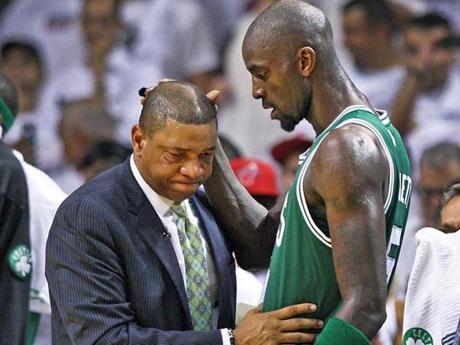
The debate around teachers and public education’s challenges is primed with rhetoric, conflict, intense emotion and lack of unity.
On the one side, policy makers, school districts and education reform minded funders and foundations lament the lack of teacher accountability and push for more value-added growth measures linking teacher and student performance, and meaningful accountability for non-performance (translation: dismissal of non-performing or under performing teachers while differentiating positively the pay and scale of performing teachers).
On the other side, teacher unions and their leadership decry the need for better support, training and leadership of teachers that helps under-performers improve rather than punishing their under performance with dismissal. Higher pay, better conditions and more collaboration versus individual accountability are the levers for improvement.
Who is right?
I’d like to start with consensus, or at least what little exists in this particular debate. Both sides agree that the single most important determinant of a student’s academic success is the quality of the teacher. However, both sides disagree on what it takes to develop, maintain and scale quality teaching.
The “accountability” side of the debate believes that strong accountability, differentiated pay for star teachers and differentiated tenure for non-star teachers (deferring or eliminating tenure and where necessary dismissal of poor performers) will bring marketplace-like performance to public education where “winners” and “losers” can be incentivized to stay and progress or leave.
The “collaborative” side of the debate stresses that teachers do not enter the profession of teaching for market incentives, are not motivated by the size of their paycheck and face challenges particularly in low-income, high need schools that cannot be incentivized or bottom-lined away.
The truth lies somewhere in between, straddling both camps. Candidly, if we gave every teacher complete autonomy to do their jobs and a framework to reward them if they do it well and dismiss them if not – we’d have a massive group of teachers in the middle with no means by which to move/progress up the ladder. We’d perhaps for the first time adequately reward our nation’s top 10% teachers. We’d also perhaps for the first time adequately address and dismiss our nation’s say bottom 10% teachers who may truly need to find another profession. We need to do this for these two ends of the spectrum (top and bottom 10%) because they disproportionally impact public education for the better and worse respectively.
But for the remaining 80% of teachers, who need more than incentives and accountability, and more than fuzzy, feel good collaboration skills and opportunity, what do we do?
Bill Gates recent TED talk on teacher feedback provides a clue. Why not coach teachers like we do with other performers in other professions on the skills, habits, competencies and aptitudes needed for success? This kind of coaching is not episodic, short-term in nature or standardized. It is reflective of the kind of coaching found in athletics that helps individuals with varying ability and strengths reach a common goal using various principles that are customized to the performer’s unique makeup.


